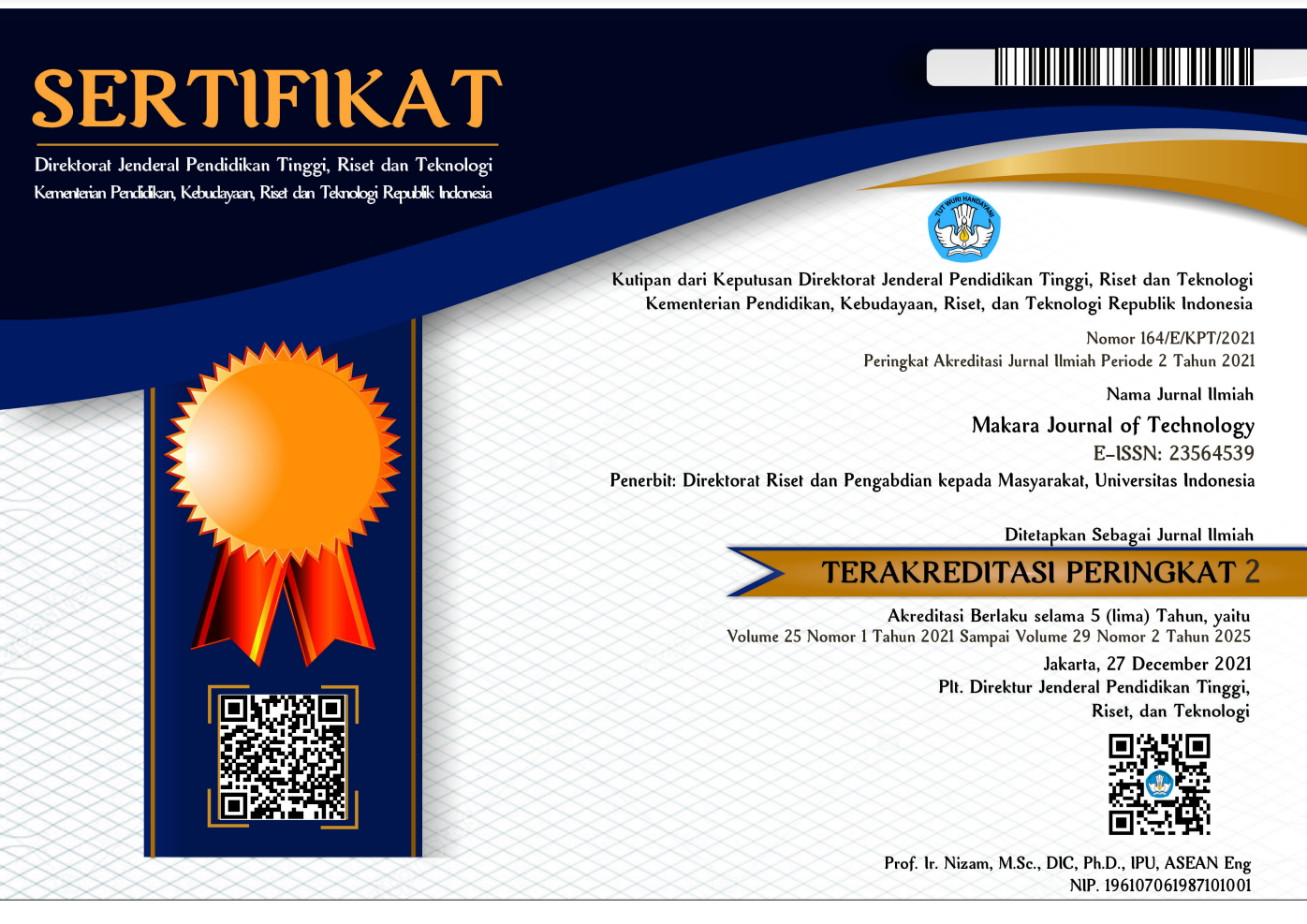Abstract
This study examines agricultural drought paddy fields in West Java. The aims of this research are to know the pattern and distribution of paddy field drought in West Java and the correlation between drought and the physical characteristics. The agricultural drought is obtained from TVI (Thermal Vegetation Index) model. TVI is derived from MODIS Terra satellite image, which is the ratio between the LST (Land Surface Temperature) and EVI (Enhanced Vegetation Index). Physical factors studied are rainfall, l slope, geomorphology, soil drainage, and irrigation areas. The most severe drought occurred in September 2006 because of El Nino, covering 806,564 ha, and distributed in almost all West Java Province while the lowest occurred in September 2010 because of La Nina, covering 101,959 ha, and mostly distributed in Subang and Indramayu district. Spatial distribution of drought in 2000-2011 has the same pattern. At the start of the dry season (May) drought occurred in the north (along the coast) then expanded to the east / south in the middle of the dry season (July-August) and then increased further to the west at the end of the dry season (September). Incidence of drought has correlation with the physical condition of the area, but the most influential is the rainfall based on Chi-square test.
Bahasa Abstract
Pola Kekeringan Pertanian di Jawa Barat Menggunakan Indeks Vegetasi Termal dari Satelit Modis-Terra. Penelitian ini mengkaji kekeringan pertanian lahan sawah di Provinsi Jawa Barat. Tujuan penelitian ini adalah untuk mengetahui sebaran wilayah dan pola kekeringan pertanian lahan sawah yang terjadi di Provinsi Jawa Barat dan untuk mengetahui hubungan kekeringan pertanian lahan sawah dengan karakteristik fisik lahannya. Kekeringan pertanian diperoleh meggunakan model thermal vegetation index (TVI) dari pengolahan citra satelit MODIS Terra tahun 2000- 2011. TVI merupakan rasio antara land surface temperature (LST) dan enhanced vegetation index (EVI). Faktor fisik yang dikaji adalah curah hujan, kemiringan lereng, geomorfologi, drainase tanah, dan wilayah irigasi. Hasil yang didapatkan adalah kekeringan sangat berat tertinggi terjadi pada bulan September 2006 dengan luas 806.564 ha yang meliputi hampir seluruh Provinsi Jawa Barat karena pengaruh El Nino, sedangkan terendah terjadi pada bulan September 2010 dengan luas 101.959 ha yang sebagian besar berada di Kabupaten Subang dan Indramayu karena pengaruh La Nina. Sebaran kekeringan pada tahun 2000-2011 memiliki pola yang sama yaitu pada awal musim kering (Mei) kekeringan terjadi di bagian utara (sepanjang Pantura) kemudian bertambah luas ke arah timur/selatan pada pertengahan musim kering (Juli-Agustus) lalu bertambah lagi ke arah barat pada akhir musim kering (September). Kejadian kekeringan memiliki hubungan dengan kondisi fisik wilayah. Akan tetapi, berdasarkan uji ststistik Chi-square faktor yang paling berpengaruh adalah curah hujan.
References
- A.T. Jayaseelan, Proceedings of a Training Workshop Satellite Remote Sensing and GIS Applications in Agricultural Meteorology, Dehra Dun, India, 2003, p.291.
- B. Irawan, Forum Penelitian Agro Ekonomi, 24/1 (2006) 28.
- H. Ruud, S. Bob, J.J. Thomas, Proceedings of the 2nd International CAHMDA Workshop on: The Terrestrial Water Cycle: Modelling and Data
- Assimilation Across Catchment Scales, Princeton, NJ, 2004, p.45.
- T. Hung, Y. Yoshifumi, Int. J. Geoinformatics, 1 (2005) 25.
- I. Sandholt, K. Rasmussen, J. Andersen, Remote Sens. Environ. 79 (2002) 213.
- W. Suseno, Undergraduate Thesis, Faculty of Mathematic and Science, Universitas Indonesia, 2008.
- Parwati, Suwarsono, J. Penginderaan Jauh. 5 (2008) 35.
- D. Dirgahayu, Prosiding Seminar Nasional Sumberdaya Lahan Pertanian, Balai Besar Penelitian dan Pengembangan Sumberdaya Lahan Pertanian, Departemen Pertanian, Bogor, 2006.
- J.A. Sobrino, J.E. Kharraz, Int. J. Remote Sens. 24 (2003) 24.
- R. Congalton, Int. J. Wildland Fire. 10 (2001) 321.
Recommended Citation
Daruati, Dini; Rahmatulloh, Rahmatulloh; and Purwadhi, Sri Hardiyanti
(2013)
"Agricultural Drought Pattern in West Java Using Thermal Vegetation Index from Modis-Terra Satellite,"
Makara Journal of Technology: Vol. 17:
Iss.
1, Article 9.
DOI: 10.7454/mst.v17i1.1927
Available at:
https://scholarhub.ui.ac.id/mjt/vol17/iss1/9
Included in
Chemical Engineering Commons, Civil Engineering Commons, Computer Engineering Commons, Electrical and Electronics Commons, Metallurgy Commons, Ocean Engineering Commons, Structural Engineering Commons



